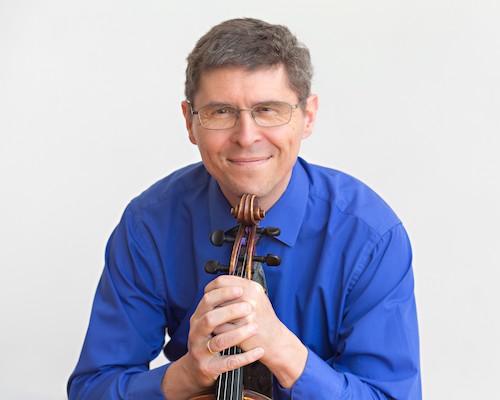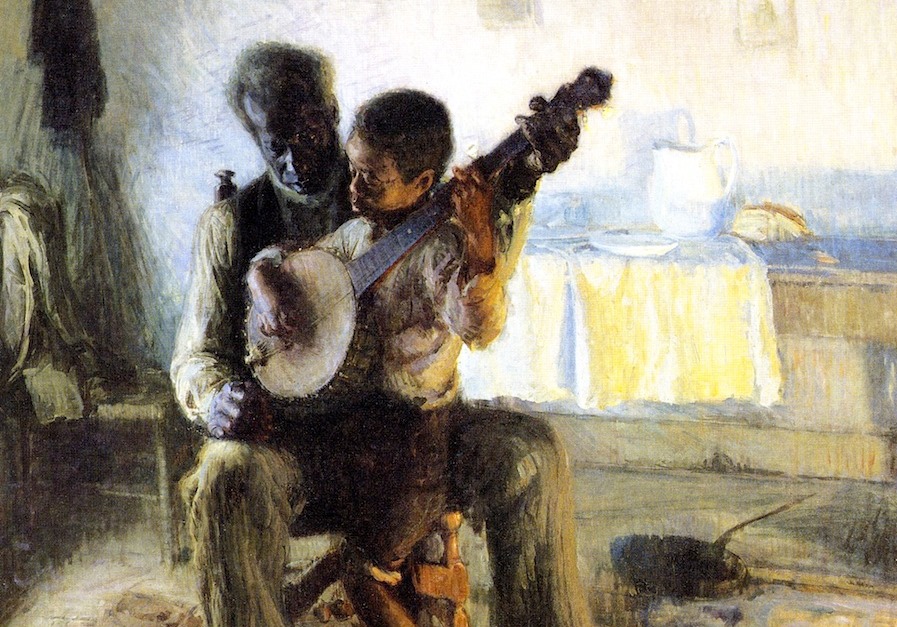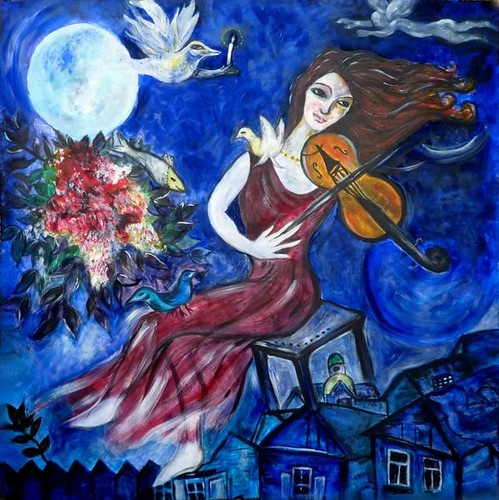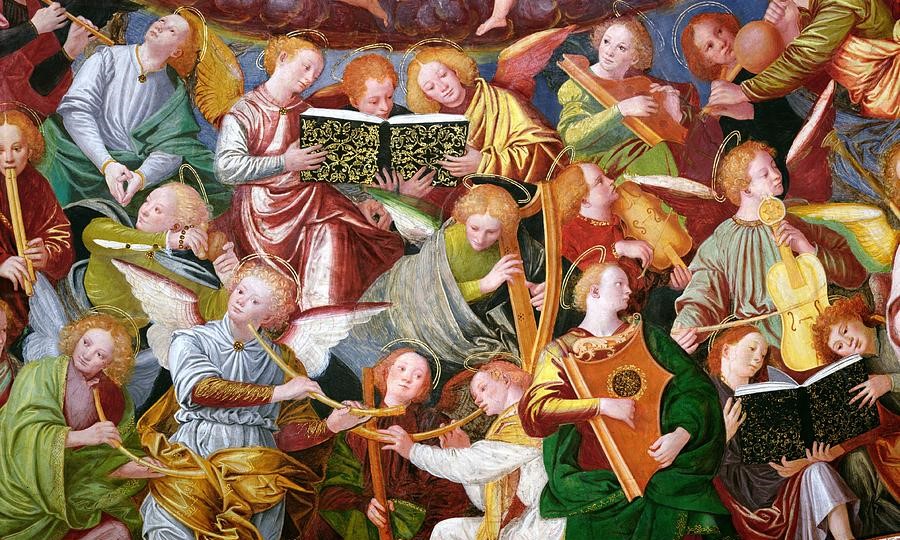Mary Vanhoozer is a multi-instrumentalist and melodist, who aims to restore beauty one note at a time, and to help listeners cultivate the virtue of sustained listening.
MV: Describe the path that led you to establish CREDO, and the key moments that clarified this direction.
PS: By the time I was 40, I had read the biographies of many legendary musicians (Casals, Kreisler, etc) and had worked with many of the world’s most famous musicians – YoYo Ma, Aaron Copland, Ella Fitzgerald, Julie Andrews, Itzhak Perlman…. I discovered that the artists I respected the most also were people who radiated goodwill and love. Although I had worked for many years in leading school and summer programmes, none of them had codified a way to lead people to personal growth – their whole curriculum was concentrated on artistic/professional growth.

I hypothesized that we needed to balance the self-centered qualities of typical conservatory training with other-centeredness. This resulted in the formation of Credo – a time and place set apart from normal studies where we could combine the highest level of classical music training with Christian faith (following the servant-leadership model of Jesus!) and intentionally serving others with our art and being. We had no idea whether this novel idea would work, but the first year we were blessed with brilliant faculty and 45 intrepid students. 22 years later we have nearly two thousand alumni who are often significant musical leaders themselves.
In the years since Credo’s inception, there have been many opportunities for self-reflection. Credo has excellent faculty, wonderful facilities (at Oberlin Conservatory), a well-designed curriculum and talented students. What sets Credo apart from every other music festival is the way that high artistic standards are applied in an atmosphere of cherishing the individual. By welcoming and celebrating each student as a child of God, Credo creates a “Mr. Rogers” type atmosphere where everyone is free to maximize their personal and musical growth.
MV: How would you say CREDO is different from other chamber music festivals?
PS: Many music festivals put the performers first, or perhaps they put legendary composers and their works first. If Credo is doing our job correctly, we are putting God first. The joy that comes out of celebrating all of His gifts should be evident in the intensity with which we pursue excellence, but also in the emotional transparency of our performances. Upon hearing Credo students playing an orchestral concert in Cleveland’s famous Severance Hall, the reviewer remarked at the joy and exuberance of the students’ performance. He (mistakenly) attributed it to them hearing their sound in that beautiful space – but it was actually the joy of performing music with people that shared a special love and connection. At Credo the result is important – and hopefully impressive…. but we’re really about the process.
MV: One of the ways CREDO is unique is the service projects – opportunities for campers to serve the community with their musical gifts, as well as sometimes just by the ministry of presence and service. Can you explain the significance of that service element? Is there a connection between practising music and service?
PS: Matthew 23:12 tells us that “whoever humbles himself will be exalted” and Matthew 25:40 tells us that “whatever you did for the least of these brothers, you did for Me.” Being a high-level classical musician requires many hours in a practice room – separated from people. It can also mean fancy concert dress, expensive instruments, and sitting up on a stage (again, separated from people!) looking for applause and adulation. By taking one day a week serving others young musicians connect with real people. By doing physical service projects (cleaning shelters for the homeless, helping at food banks) we celebrate our common humanity – we all need shelter and food, and any one of us can work to provide that for others. When we play concerts, we get to appreciate that we have a special tool into people’s hearts, to provide inspiration, beauty, challenge and peace. The famous violin teacher Leopold Auer said the aim of every great artist is “to understand and be understood.” Great musicians understand the music they play, but they also have deep empathy for their fellow man.

MV: You have been present for most CREDO student concerts, and you have witnessed the reception of those concerts first-hand. Can you describe some of the most memorable or significant audience responses to student performances?
PS: I have indeed witnessed hundreds of CREDO concerts over the years. Our students welcome each day by singing hymns together in a gothic chapel – in beautiful multiple-part harmony. (That’s a beautiful sound I wish I could share with you!) Their playing has boomed throughout stadiums of 40,000 (playing the National Anthem), they have played quiet concerts for intimate gatherings of critically ill people. They have triumphed in Orchestra Hall, Chicago, and Severance Hall, Cleveland, and they have played on inner city street corners and public parks.
The most memorable reactions have come from music reaching people in an hour of need – like families at a hospice centre, or people with limited access to classical music. One prison inmate said he appreciated our gift of love to him – we did not know him or what he had done, but we gave him the love-gift of music anyway. But the most memorable responses I’ve seen have been in nursing homes, where music can completely energize and focus people who come to the concert completely disengaged from sensory input. Music knocks down all barriers!
My favourite moments have come in our large orchestral concerts – after moving the audience with inspiring symphonic performances, the students of Credo sing “The Lord Bless You and Keep You.” In the early years it was just a benediction gift from the students to the audience. But in recent years we’ve asked the audience to join in, too. What a spectacular way to seal the shared emotional journey of a concert – with mutual celebration and blessing of 500 or more people, joined for a special hour or two of their lives!
MV: CREDO is a place where young musicians not only receive lessons, but are mentored by some of the best craftsmen in their field. What does it mean for students to learn from the CREDO faculty? What does it mean for the CREDO faculty to work with these young men and women?
PS: Credo faculty are leaders in the music profession – department chairs at Juilliard, Oberlin and the like, players in major symphony orchestras. They come back to Credo year after year because of the special bond they develop with students at Credo. Faculty welcome students with unconditional love. Both the most talented and least advanced students are appropriately challenged and nurtured – which is freeing and inspiring to faculty and students alike. Credo’s format contains several aspects that foster deeper communication between faculty and students:
1) Daily coaching – students meet with the same faculty mentors 5 days a week.
2) Each day at Credo begins with a faculty member presenting a homily to the community (students and faculty). Beginning each day with God’s word amplified and explained fosters an atmosphere that leads to informal faith discussions throughout the festival.
3) Credo faculty members cherish the “fireside chats” where they share their life journeys (musical and spiritual) with the students. In doing so, the faculty members become vulnerable and relatable to the students.
The close mentoring that begins at Credo often extends many years into the future – as Credo alumni turn to favourite faculty members at crucial crossroads in their lives.
MV: Some of our readers may not be familiar with classical music. Why do you believe classical music is important to play and perform live? Why might listening to live music making be just as important as playing it?
PS: The popular singer Bobby McFerrin talks about music being a big house with many rooms. He points out that “you don’t want to spend your whole time in one room.” Some of our music is good for getting things done (the basement, kitchen or workshop), some of it is good for relaxing (the family room or patio). Classical music is a more formal place set aside for lofty ideals. It’s nice to put on good clothes to go out to dinner or to church. It’s nice to decorate a holiday table with special plates and linens. It’s good for our souls to “dress up” and approach classical music on a regular basis.
Classical music operates on longer time spans than most popular music. While a pop song might be 5 minutes, a classical composition might have 4 movements, each lasting 10 minutes or more. Popular music rolls easily in 4-bar phrases – many classical compositions set up complex harmonic problems that unfold over many minutes.

The emotional gamut of classical music is extreme – from brutal to sublime, from whimsical to profound. The purpose of all art is to exercise our emotions – and by going to a classical concert one can experience an extremely wide variety of instrumentation, rhythmic pulses and emotions.
In some sense classical music is a bit like a good Bible study – to get the most out of it, we have to slow down and tune out the noise of the world, and enter a new world created by the composer.
During the recent pandemic, I’ve still been doing my job of listening to music many hours a day, teaching people. But I was separated from the opportunity to hear live, in-person music in a concert setting. The first few postpandemic performances I attended practically brought me to tears – the experience of musical communication across space was that remarkable and beautiful! I would love for each person to have the opportunity to hear a great madrigal group, a thundering symphony or an intimate string quartet in a concert setting. How might that change the world?
MV: While CREDO offers individual lessons and masterclass opportunities to students, it is primarily a chamber music camp. Is there something unique or particular about chamber music that lends itself well to CREDO’s vision? What chamber music repertoire would you recommend to someone who is new to the genre?
PS: I chose the format of chamber music as the primary mode of instruction at Credo because it’s the most effective way for students to learn in the summer. They develop their playing and artistry by incorporating the best aspects of their partners’ playing. Quartets are self-directing: that is, each member has a responsibility and opportunity to be a musical leader. For some of these same reasons, chamber music is an ideal format for mentorship – the faculty coach has an intimate group setting to develop trust and to challenge students to greater personal discovery.
It’s unfair to ask for a short list of great chamber music works! But here goes:
First movement of Haydn “Sunrise” Quartet. This is a miraculous piece with beautiful – almost romantic! – melodies set in a classical shell.
Last movement of Beethoven Op. 59 No. 3. A very exciting fugue with a brilliantly-long subject!
Last movement of Mendelssohn C minor Piano Trio. From an intimate beginning to a thundering finale – inspiring!
First movement of Ravel Quartet.
French impressionist music at its best.
MV: CREDO recently celebrated its 20th-year anniversary – when you think about CREDO’s 50th anniversary, how do you envision its impact and place in society, nationally and internationally?
PS: I foresee a network of local hubs each representing excellence. These hubs will be guided by inspiring artist-teacher-philosophers, and artists all along the chain from beginner to accomplished professional will share the joy of making music together and sharing it with their community. In their music and actions, these musicians will win people to follow Christ by “showing them a more excellent way” (1 Corinthians 12:31).
The “Credo-future” dream is that every family who values faith, music and service can know about Credo and benefit from its opportunities for musical and personal mentorship.

MV: Would you say that CREDO is just for those training to become professional musicians? What would you want CREDO to offer to those who plan to remain amateur musicians?
PS: Many studies have shown that musical training is helpful to all kinds of brain development. Playing an instrument at a high level requires the determination and training of an athlete, the probing mind of a philosopher, the vision of an artist, and the resource management of an economist. Mastering your instrument (playing your part well) while being sensitive to your fellow quartet members approximates the challenges we will face in our families and businesses. Independent excellence as a team player – that’s what many companies are looking for! We learn all those skills in chamber music. Combining those skills with a biblical foundation to put other people first results in exceptional leadership training.
MV: CREDO is a unique music festival with a very special vision for music making. What can music lovers do to help support classical music and, more specifically, how can we help support CREDO and its mission?
PS: Credo is at an exciting point in our history. Sadly, the pandemic deprived us of the opportunity to be incarnate for the Festival for two summers. But we have continued to grow the ministry through the development of a network of local hubs. (This network is called Credo Club.) There are numerous ways and levels to be involved with Credo. The best part is that you don’t have to be musical yourself to share in the joy of Credo!
You can:
AUDIO/VIDEO LINKS
CREDO Chamber Music Festival: Mendelssohn String Octet Op. 20
Symphony Center and Severance Hall: Credo Brandenburg Concerti 2015
The Kirby Laing Centre for Public Theology in Cambridge. Charity registered in England and Wales. Charity Number: 1191741
Kirby Laing Centre, The New Mill House, Unit 1, Chesterton Mill, French’s Road, Cambridge, CB4 3NP
© 2022 The Kirby Laing Centre for Public Theology in Cambridge